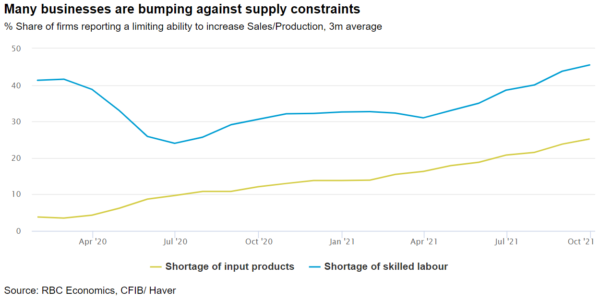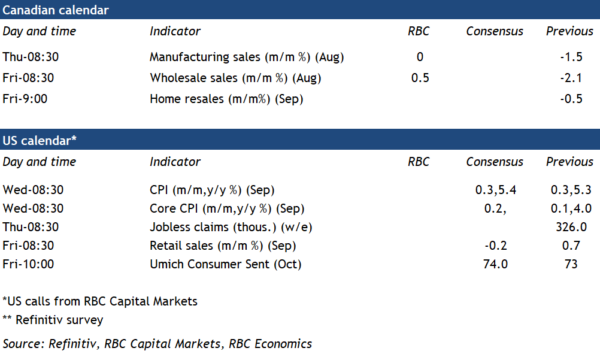Supply chain disruptions will be at the heart of next week’s Canadian manufacturing and wholesale trade reports. We expect a flat reading for manufacturing sales in August versus Statistics Canada’s preliminary estimate of a 0.5% increase. A global semi-conductor shortage continues to disrupt auto production and businesses across the industrial sector are struggling to deal with higher input costs. Freight rates have skyrocketed, shipping times have lengthened, and reports of labour shortages are widespread.
Households are still flush with purchasing power thanks to government support and lack of spending options through the pandemic. But production is clearly bumping into capacity limits. That’s making inflation a greater concern than a shortfall in consumer demand. Next week’s US CPI report is expected to show still elevated price growth from a year ago (when prices were unusually low due to the pandemic). But it will also reveal a third consecutive of slower month over month growth compared to the immediate price surges that followed the reopening of the economy (particularly for motor vehicles). Most of the increase in producer input costs has yet to flow through to consumer prices. The longer supply chain disruptions last and commodity prices remain elevated however, the more likely price pressures become more pervasive and pronounced.
Week ahead data watch:
- Canadian wholesale trade likely increased by 0.5% in August, driven by higher sales of food and beverages, according to Statscan.
- US CPI for September will likely show another elevated YoY gain though the monthly pace of price increases is expected to remain smaller than the April-June surge during the initial reopening of the economy.
- Canadian home resales likely continued to moderate from exceptionally strong levels in September based on early local market reports.


